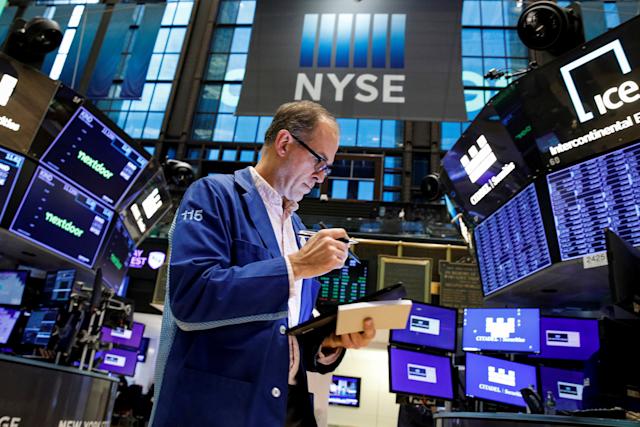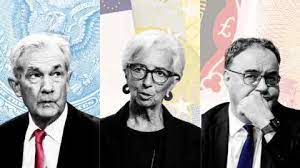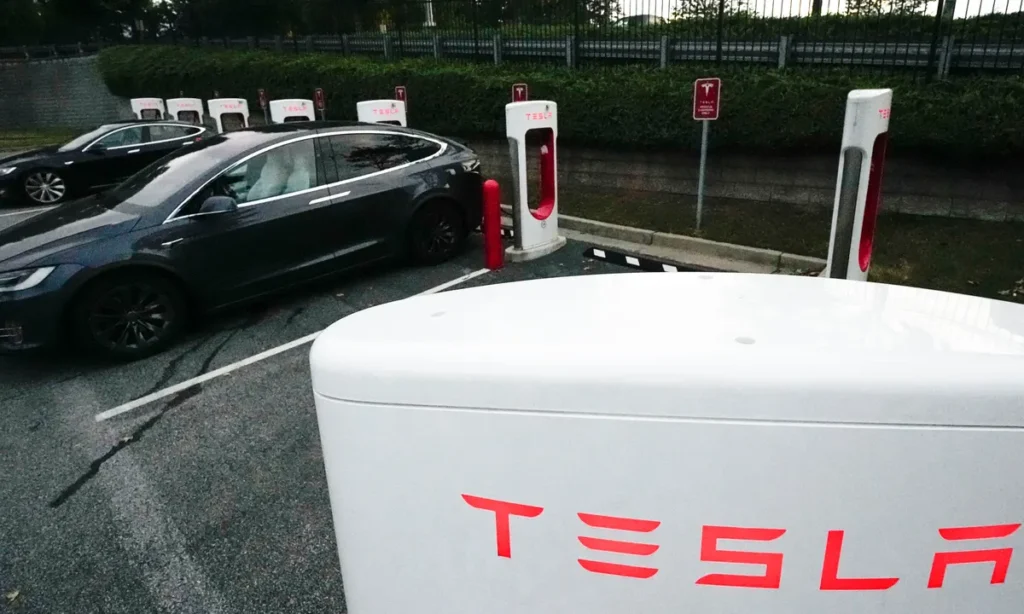The war in Ukraine has tended to increase uncertainty regarding inflation and growth prospects. When and with what consequences this war will end is pure speculation, but capital markets are expected to build a certain immunity to the headline risks in the coming weeks. The medium- to long-term consequences, on the other hand, could be significant. It is possible that we are at the beginning of a new bloc formation or a new Cold War. This would put a significant damper on globalisation and further fuel higher structural inflation.
Wall Street reversed course and posted losses on Thursday as Federal Reserve Chairman Jerome Powell suggested the US central bank would move aggressively to curb inflation. The Dow slid 368 points, erasing a more than 300-point rally, the S&P 500 lost 1.5%, while the Nasdaq Composite dropped 2.1% to turn negative for the week. Meantime, European equity markets closed mostly higher as the earnings season continued to uplift sentiment.
Summary
- Asian shares tumbled on Friday as investors fretted about an increasingly aggressive rate-hike outlook for the US as well as the fallout for the global economy from lockdowns in China. Major indices in the region were down at least 1% each.
- European and US equity futures are in the red as the prospect of one of the most aggressive Federal Reserve monetary tightening cycles in recent history sent jitters across global markets.
- Oil prices wobbled this morning as concerns about supply due to a potential European Union ban on Russian oil were offset by demand worries.
- Federal Reserve Chairman Jerome Powell indicated that front-loading the current tightening cycle could be warranted to combat high inflation. Powell, who was speaking as part of an International Monetary Fund panel, also confirmed that a larger-than-normal 0.50% rate hike would remain an option for the May meeting.
- SAP reported this morning a Q1 revenue growth of 11%, beating estimates on a boost from its cloud business, but flagged a revenue hit of €300 million because of its exit from Russia.
- Renault, the Western carmaker most exposed to the Russian market, posted lower Q1 revenues due to the war in Ukraine and a semiconductor shortage, partially offset by higher prices and rising electric vehicle sales.
- Snap missed expectations for profit and sales, and forecast disappointing revenue growth in the current quarter, when it reported Q1 results on Thursday. However, daily users grew 1.8% annually, more than expected.
- Emanuel Macron is closer to winning another term at the helm of Europe’s second largest economy as nationalist leader Marine Le Pen runs out of time to narrow the gap between them before the presidential runoff ballot on Sunday. That gap widened since April 10 to about 12%, as Le Pen’s weaknesses on the economy became more apparent and politicians on the left and right rallied around Macron.
- Ukraine is calling on IMF members to donate 10% of their reserve assets received from the institution to support rebuilding the country. The cost for the rebuilding is estimated at $600 billion, according to Prime Minister Denys Shmyhal. Last year the IMF allocated a record $650 billion in reserves for its 190 member countries to deal with the pandemic fallout.
- Wall Street banks, and some international ones too, showed up in force to back Musk’s run to buy Twitter. Morgan Stanley, Musk’s adviser, has pledged to provide the biggest chunk of the money – about $5.5 billion. In all, $25.5 billion would come in the form of multiple types of debt from a dozen banks across Wall Street and the rest of the world.






